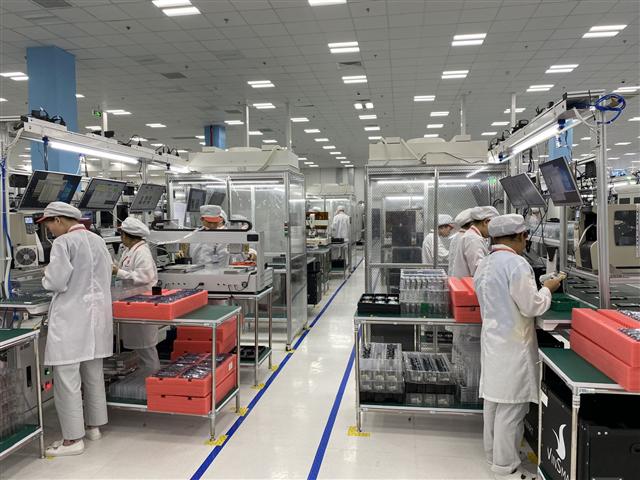Electronic support industry needs to speed up digitization
Electronic support industry needs to speed up digitization
Vietnamese manufacturers account for 80 percent of the value of the largely foreign-invested electronics industry. However, after more than 30 years, the development of this support industry has not achieved the expected results. At the same time, many new challenges are emerging, requiring businesses to promote creative innovation and adapt to the times.
|
Risk of falling behind
At a recent forum themed “Connecting businesses to the global supply chain: Opportunities and challenges in the post-Covid-19 period”, experts discussed the risk of falling behind in technology. Do Thi Thuy Huong, Vice President of the Vietnam Association for Supporting Industries and Executive Board Member of the Vietnam Electronic Industries Association (VEIA), said the accelerated development of digitization is forcing local business to step up innovation because they can no longer rely on Vietnam’s traditional advantages of cheap labor and available natural resources. Instead, she added, Vietnam’s industry must offer a highly-skilled manufacturing workforce rather than ranking last among Asia’s electronics manufacturers as it does today.
Apart from the risk of lagging in technology, Vietnam’s electronic support industry also faces many challenges, including non-traditional security threats, climate change and unsustainable resource exploitation.
Risk of material shortages, components and support parts for the electronics industry due to the Covid-19 pandemic are also challenging domestic manufacturers who source components from China, the Republic of Korea and Chinese Taipei.
Speeding up digitization
Digital transformation in Vietnamese enterprises remains slow. Although the application of digital technologies in production and business is an important condition for development, most Vietnamese enterprises use computers at a basic level but lack professional and intensive applications.
Few enterprises are willing to invest in digitalization, accounting for only about 20 percent of the country’s total. “Up to 51 percent of Vietnamese businesses use digital technology for advertising and product marketing, but only one percent applies it for online sales,” said Pham Lien Anh, an expert at the International Finance Corporation said.
Meanwhile, all upstream enterprises in the electricity and electronics multinational value chains have specialized information technology departments building digital platforms, allowing them to connect globally, build database systems for management and evaluations of global suppliers.
Given the above-mentioned challenges, Do Thi Thuy Huong recommended that Vietnam adjust policies promptly in supporting businesses, ensuring foreign investment attraction, and ensuring more selective FDI inflows. Priority should be given to advanced, sustainable technologies that have a pervasive effect on the Vietnamese economy and create more opportunities for Vietnamese businesses to participate in the global supply chain.
The government should focus investments in leading companies of the industry so that they can pull up small and medium-sized enterprises, develop and form a supply chain for Vietnamese enterprises. Especially in the manufacturing sector, the state needs to prioritize investment in mid- and high-end technologies, and avoid outdated technologies and machines.




























